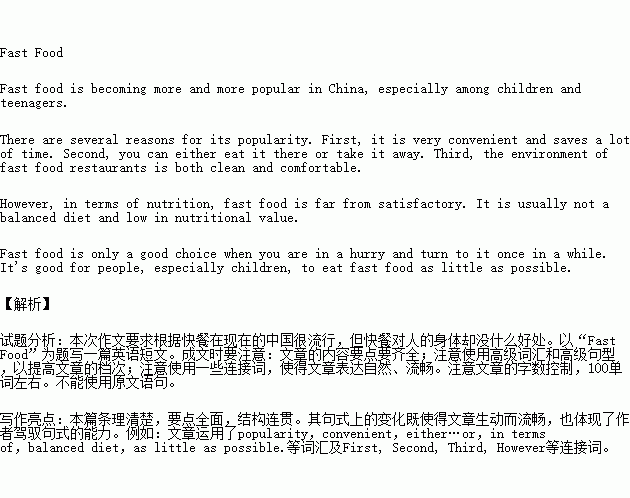��Ŀ����
��������ڵ��й������У�����Ͷ��˵�����ȴûʲô�ô��������������Ҫ���ԡ�Fast Food��Ϊ��дһƪӢ����ġ�
ע�⣺
1��������й�ʮ�����У����ǣ������Ƕ�ͯ��������ϲ���Կ�͡�
2������ܻ�ӭ���������������ԭ��
�ŷ��㡢��Լʱ�䣻
�Ƽȿ��ڿ�͵�����ֿɴ��ؼҳԣ�
�ǵ���Ļ����ɾ��������
3����Ӫ���ǶȽ������ʳƷȴ�������⣻
4. ���飺��ʱ���������ɿ��dzԿ�ͣ�����ż��Ʒ��Ϊ�ˣ�����Ҫ�� ���ٳԿ�͡�
����100���ҡ� �ο��ʻ㣺Ӫ��(nutrition)
��ϰ��ϵ�д�
�����Ŀ

